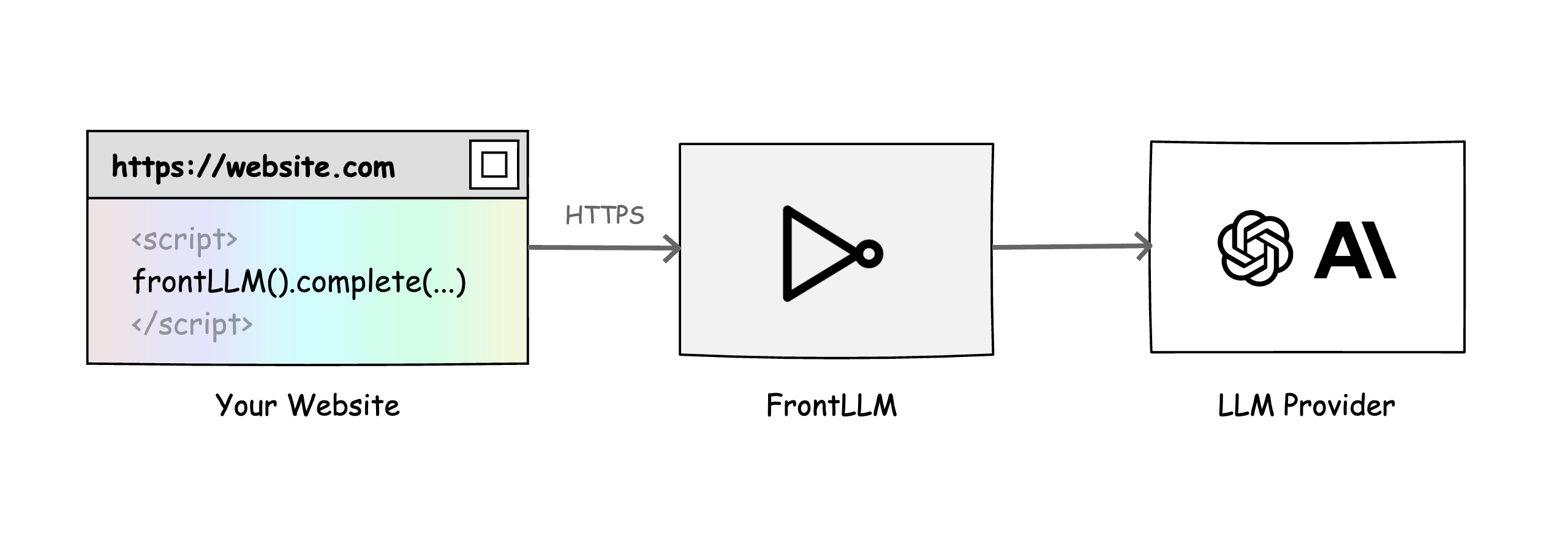FrontLLM Introduction

FrontLLM is your public gateway to LLMs. Request LLM directly from your front-end code. No backend needed. FrontLLM supports rate limiting, usage tracking, and more. It works with any front-end framework, including React, Vue, and Angular.
🚀 Installation
NPM
To use FrontLLM in your project, you can install it via npm:
npm install frontllm
Now you can import the library and create an instance of the gateway with your specific gateway ID:
import { frontLLM } from 'frontllm';
const gateway = frontLLM('<gateway_id>');
CDN
To use FrontLLM via CDN, you can include the following script tag in your HTML file:
<script src="https://cdn.jsdelivr.net/npm/frontllm@0.1.1/dist/index.umd.js"></script>
This will expose the frontLLM function globally, which you can use to create an instance of the gateway:
<script>
const gateway = frontLLM('<gateway_id>');
// ...
</script>
🎬 Usage
Chat Completion:
// Short syntax - requires the default model configured in the gateway
const response = await gateway.complete('Hello world!');
// Full syntax
const response = await gateway.complete({
model: 'gpt-4',
messages: [{ role: 'user', content: 'Hello world!' }],
temperature: 0.7
});
// Output the generated response text to the console.
console.log(response.choices[0].message.content);
Chat Completion with Streaming:
// Short syntax - requires the default model configured in the gateway
const response = await gateway.completeStreaming('Where is Europe?');
// Full syntax
const response = await gateway.completeStreaming({
model: 'gpt-4',
messages: [{ role: 'user', content: 'Where is Europe?' }],
temperature: 0.7
});
// Output the generated response text to the console.
for (;;) {
const { finished, chunks } = await response.read();
for (const chunk of chunks) {
console.log(chunk.choices[0].delta.content);
}
if (finished) {
break;
}
}